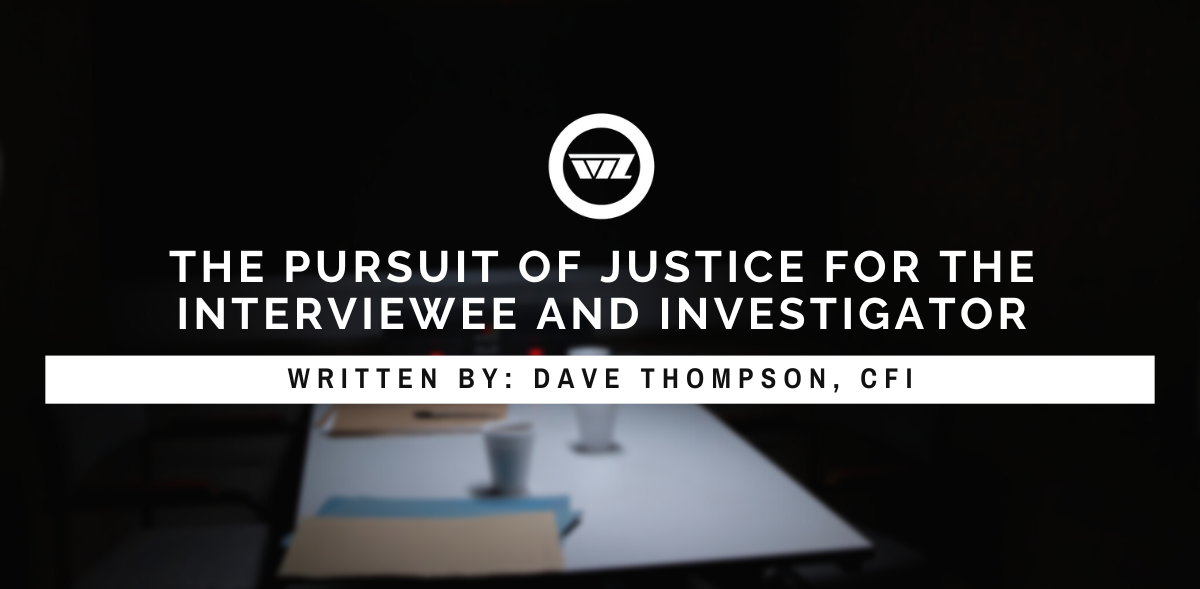The presumption of innocence is part of the fundamental structure of our criminal justice system. Within this system are several key players including law enforcement professionals, prosecutors, defense attorneys, judges, subject matter experts, and jury members. Although each may serve a specific role, there is an underlying commonality of the goal to ensure public safety while also protecting our communities.
The pursuit of justice includes protecting the innocent through constitutional safeguards, but also the righteous acts of those tasked with such a great responsibility.
The International Association of Chiefs of Police adopted its Code of Ethics in 1957, beginning with the fundamental duty of officers to “…serve the community; to safeguard lives and property; to protect the innocent against deception…and to respect the constitutional rights of all to liberty, equality and justice…”. As we recognize International Wrongful Conviction Day, it is important to challenge ourselves as practitioners, trainers, and advocates within the system of how we fulfill this mission ethically and justly.
A leading contributor to wrongful convictions is a false confession provided by an innocent person. These false statements are often utilized as the strongest piece of evidence against a defendant and perceived as such by many juries and judges. As investigators, we must seek to understand the typology of false confessions and the common contributors that facilitate them. Additionally, investigators and those critiquing confessions should scrutinize their reliability, just as we would any forensic evidence or witness testimony.
Although we may never fully eradicate false confessions, we have identified some of the major concepts that investigators should embrace to mitigate their frequency and ideally, identify them if they do occur.
Electronic Recording
Although recording an interview does not eliminate the potential for a false confession, it does provide us with transparency of the conversation. Recording has several benefits for all members of the criminal justice working group – but in the context of false confessions, it can serve as a valuable tool in identifying the reliability of information provided. This also allows the investigator to evaluate any information provided by the interviewee, while also critiquing their compliance with training standards.
Understanding Vulnerabilities
To be clear, any person can be susceptible to a false confession under the “right” circumstances. However, we do know that certain vulnerabilities may increase the likelihood of obtaining false information. Youthful age, exposure to trauma, and intellectual capacity are a few of the common vulnerabilities seen in false confessors. Additionally, there may be situational or environmental factors, such as exhaustion or the physical setup of the interview room, that could cause anyone to become vulnerable. It is essential to educate investigators on these factors and how they may impact the interview process.
Identifying Coercion
As investigators moved from third-degree tactics to psychological persuasion several decades ago, the way we understand coercion has also evolved. Tactics that include threats (implicit or explicit) combined with suggestions of leniency or promises are known to provide incentives to interviewees to confess to a crime – even if they did not commit it. Depending on the circumstance, innocent subjects may feel it is in their best (or only) interest to comply with an investigator versus continuing to defend their innocence. It’s the combination of coercive tactics that often puts an interviewee into such a position, weighing the risks of confession alongside the perceived benefits of compliance.
Removing Deceptive Tactics
The use of false evidence ploy, knowingly lying about the existence of evidence, poses several issues in the pursuit of reliable information. This strategy, which contradicts the essence of genuine rapport and transparency, is known to be a common contributor to false confessions. Often trained in this technique, investigators may be unaware of the potential negative consequences of such a strategy. Lying about the existence of evidence may cause memory distrust from an innocent person or even incentivize a person to confess – trusting that the investigation will prove their innocence. Many agencies have already adopted policies to remove this tactic as standard practice, and several states have passed legislation to the same extent.
Evaluating a Confession
Whether due to inappropriate interview tactics, negligence by the investigator, or even a voluntary confession – investigators should educate themselves on how to properly critique the information provided. Although the initial assumption is that all false confessions are caused by unethical practices, there are several occurrences where well-intended investigators obtained false information unknowingly. Interviewers must first understand that an investigation is not over after receiving an “I did it” by their interviewee. Substantiation and corroboration of any admission is essential to identify its veracity. A confession is one piece of evidence to be compared to the whole, rather than a sum of its parts. Additionally, investigators should review their recorded interview to determine if coercive elements were present, if they contaminated the confession by providing details and if the information provided could be independently corroborated.
Defining what “Success” Looks Like
This last item on our list is perhaps the most important. Investigators must change the focus and purpose of interviews away from confession-driven approaches. Although a confession may be the outcome of an interview and serves a valuable purpose, this should not be the goal of the conversation. Instead, investigators should focus on obtaining reliable information, actionable intelligence and using any disclosures to further their investigation. Reliable information may include an admission of guilt, an implication of others, or the exoneration of a person’s involvement. An interview that identifies additional, reliable details to prove a person’s innocence is a success.
At its core, investigators have the same goal as others in the criminal justice working group – protecting our communities. The conviction of an innocent person is not only an injustice, but also further victimizes the community by allowing the actual guilty perpetrator to continue to commit additional crime. In the spirit of public safety, investigators should embrace the education and awareness of wrongful convictions to fulfill their mission. Additionally, those involved in the fight for innocence should seek to understand how they can best support the practitioner community in the awareness and education of such an event.
David Thompson, CFI, is the President of Wicklander-Zulawski & Associates, Inc. (WZ). He is responsible for the day-to-day operations of WZ, as well as strategic planning and the evolution of interview and interrogation content. David has also served as the Director of Investigations giving him the opportunity to manage a variety of cases while conducting interviews and consulting on investigations ranging from theft and fraud to sexual harassment and homicide. As a speaker for WZ, David has created customized training programs, presented at seminars, hosted a variety of webinars as well as conducted live broadcasts of training.



